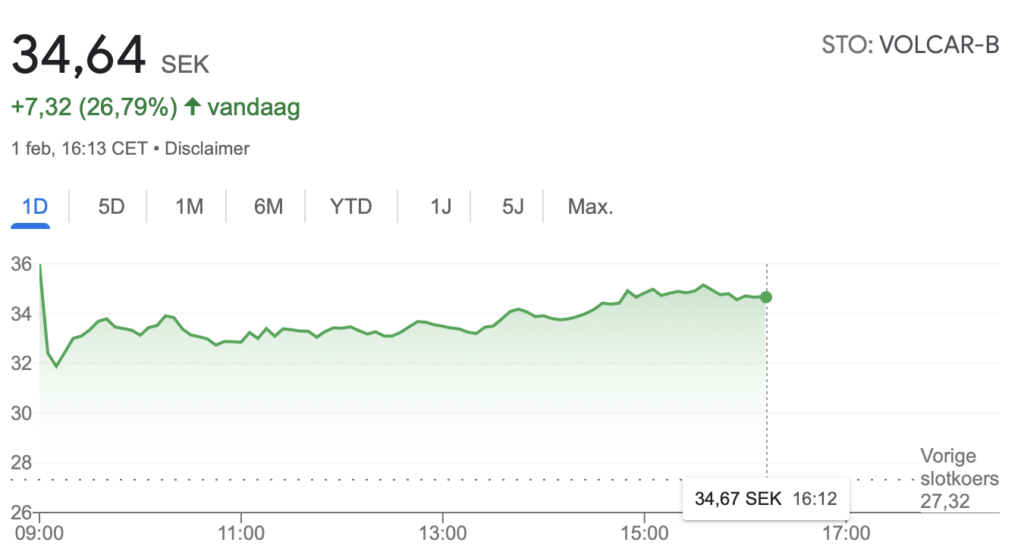In short. Volvo Cars will not provide further funding to Polestar, the electric car maker it co-founded with Chinese owner Geely. The decision comes amid a series of setbacks in the auto industry, which is struggling with the transition to electric vehicles.
Why is this important?
This move by Volvo marks an important moment in the automotive industry, which is facing financial challenges and a delay in the adoption of electric vehicles (EVs). The decision reflects further concerns about the feasibility and economic impact of the transition to electric mobility, especially due to competitive pressures and high development costs.In the news. Volvo Cars is ending sponsorship of Polestar, citing concerns about the EV market and its financial burden.
- Volvo Cars shares rose more than 27% after the announcement. The move underscores investor concerns about automakers’ EV strategies.
- Other automakers, such as Renault and Ford, have also scaled back their EV plans. That signals a broader trend of rethinking in the industry.

Zoom in. Polestar was launched as an independent brand in 2017 under the leadership of Geely, the Chinese parent company of Volvo Cars. In addition, Volvo Cars retained a large stake in Polestar and also remained an important financial supporter of the brand.
- Geely will continue its investment in Polestar. This may mean that Geely will have to deploy additional financial resources. As a result, Volvo Cars is likely to reduce its stake in Polestar.
- Volvo Cars currently still owns more than 48 percent of the shares in Polestar.
The transition to V is still difficult
Zoom out. The changes made by Volvo and other automakers show the complexities and challenges of the transition to electric vehicles. Including the need for large investments and uncertain consumer demand.
- These developments suggest a re-evaluation of electric vehicle strategies, with companies able to allocate resources to improve financial viability and market position.
- The dynamics surrounding the financing and development of EVs continue to change, with potentially significant implications for the future of mobility and the fight against climate change.


























